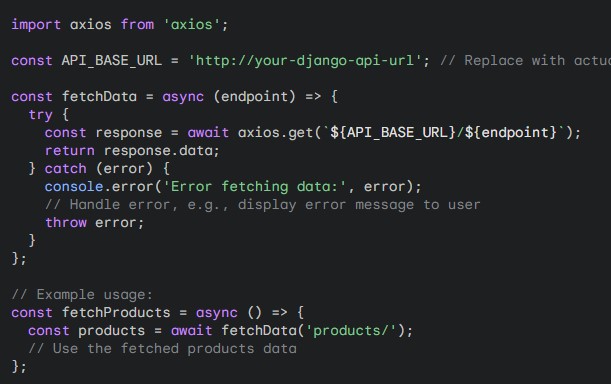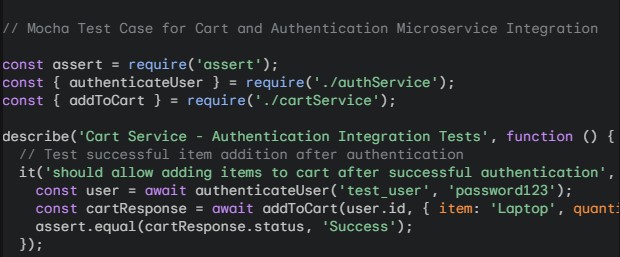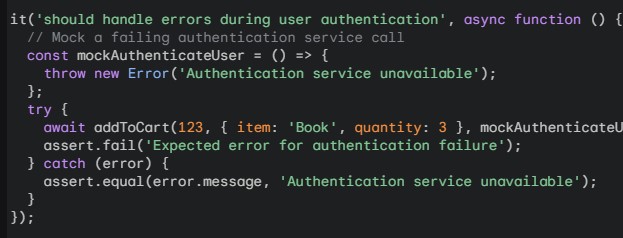
- GCA - Home
- GCA - Introduction
- GCA - Features
- GCA - How It Works?
- GCA - Getting Started
- GCA - Supported Languages
- GCA - Integration IDEs
- GCA - Best Prompts
- GCA - Code Customization
- GCA - Code Refactoring
- GCA - Collaborative Coding
- GCA for API Development
- GCA with Big Query
- GCA with Database
- GCA for Google Cloud
- GCA for Google Workspace
Gemini Code Assist - Collaborative Coding
Collaborative coding is essential and has become a necessary procedure in modern software development. Here, all the developers need to connect on one single project in order to complete all the tasks in a limited time. Sometimes, organisations also need to collaborate with others to achieve enterprise-level software solutions. Gemini Code Assist offers developers like you to work together with enhanced AI-powered optimisation and automation. It ensures seamless error-free teamwork by integrating all the required coding tools and maintaining data privacy across different organisations.
Here, we will discuss how Gemini Code Assist helps achieve a secure connection between different tools, teams and enterprises, without disturbing any version control systems.
What Is Collaborative Coding?
Gemini Code Assist enables real-time collaboration with intelligent coding suggestions and integrates with platforms like GitHub, Visual Studio Code, Google Cloud, and JIRA. Let us look at different key features, and why Gemini helps in collaborative coding.
Key Features for Collaborative Development
- Integration with Development Platforms − Gemini integrates with popular IDEs (VS Code, IntelliJ) and DevOps tools like Jenkins and JIRA to streamline workflows.
- Adaptive Code Suggestions − It analyses linked repositories in the organisation, to give exact code suggestions based on project-specific standards.
- Role-based Access Control − Ensures that contributors across organisations have appropriate access to the necessary code modules without exposing sensitive information.
- Custom AI Models − Gemini learns from your repositories, giving recommendations based on team-specific conventions and reusable components.
Cross-Team and Cross-Organization Collaboration
Gemini Code Assist ensures that teams from different companies or departments can work together without compromising data integrity, which is a highly important thing for data privacy. By using AI to link multiple repositories and workflows, Gemini ensures project consistency while improving developer efficiency.
Collaboration Across Different Teams
Lets take an example where a software company is building a multi-module fintech platform. Different teams are responsible for various microservices −
- Team A manages the API backend using Python with Django.
- Team B handles the front end with JavaScript in a React environment.
- Team C works on infrastructure with Terraform for cloud deployment.
With Gemini Code Assist, all three teams can seamlessly work together. Developers in each team can −
- Receive real-time, project-relevant code suggestions that align with their part of the codebase.
- Use shared code review workflows, ensuring consistency across modules.
- Automatically generate code stubs and connectors for APIs, based on the backend written by another team.
Prompt Example
"In the Django API module, suggest a connection function for Team Bs React front end using the existing API specification."
Geminis Suggestion

This enables a good interaction between backend and frontend developers without time-consuming consultations.
Cross-Organization Collaboration with Privacy Control
Consider a scenario where a fintech company outsources specific components to an external vendor. Gemini ensures that −
- The external team gets access only to specific modules relevant to their tasks.
- The proprietary parts remain hidden, maintaining data security.
- And overall, it tracks changes across both internal and external teams to avoid code conflicts.
Test Case Generation and Perfect Automation
Generating perfect test cases for new modules can be challenging. However, you can use Geminis AI to analyse the projects history, recent bugs, and existing test patterns to generate reliable test scenarios. Developers can customise these suggestions with project-specific requirements and constraints.
How to Ensure Perfect Test Case Generation with Gemini −
- Link repositories that contain data with some bugs.
- Define success criteria (e.g., response time, validation constraints).
- Use prompt engineering to refine test case suggestions for each module.
- Look for every possible edge case to validate complex scenarios.
With Gemini, the test cases evolve as the project develops, ensuring continuous alignment with new features and integrations.
Real-World Scenario for Development with Gemini
A large e-commerce platform needed to upgrade its microservices architecture for faster deployment. Different departments across multiple geographic locations were involved −
- North America-based teams worked on the payment gateway service.
- Europe-based teams managed the inventory and product listing services.
- Asian teams focused on user authentication and cart services.
Without a collaborative coding tool, the teams may face issues with version control, duplicated effort, and misaligned code standards. But using Gemini, the following features can be obtained −
- Code refactoring suggestions became automated, leading to optimised codebases.
- Test cases were generated automatically based on previous bugs, ensuring all services aligned with the new architecture.
- The checkout module, which required interaction between multiple services, was completed efficiently using Geminis shared coding space.
Example Prompt
"Generate test cases to verify the cart service integration with the new authentication microservice."
Geminis Test Case Suggestion

Here, more test cases can be included which are suggested by Gemini such as −
Adding items to the cart without authentication (negative test) −

Adding invalid items to the cart (negative test) −

Adding multiple items to the cart (positive test) −

Handling errors during communication with the authentication services (negative case) −

Benefits of Collaborative Coding with Gemini
The following are the benefits of collaborative coding with Gemini −
- Real-time code alignment
- Accelerated code reviews
- Enhanced version tracking
- Faster API integration
- Modular code standardisation
- Cross-repository syncing
- Secure multi-organization access
- Reduced merge conflicts
- AI-powered code troubleshooting
- Custom workflow adaptation
- Automated task assignments
- Faster onboarding for new members
- Integrated communication channels
- Scalable development processes
- Continuous project insights
Conclusion
The person who knows about prompt engineering can tackle any kind of AI assistance because they can generate content with a personalised structure and real-time required suggestions. Mastering those skills will surely enable you to use Gemini at its full efficiency. Hence, making Gemini a highly amazing tool for todays modern development, where creativity is a must.